Table of Contents
Gerry Mulligan – Night Lights (1963)
For the full album, please click the below link:
https://www.bilibili.com/s/video/BV1Q44y1z7U2
1 – NIGHT LIGHTS (1963 Version) 2 – Morning Of The Carnival From “Blac. Orpheus” 3 – In The Wee Small Hours Of The Morning
4 – Prelude In E Minor 5 – Festival Minor 6 – Tell Me When
Gerry Mulligan, baritone sax and piano; Art Farmer, flügelhorn; Bob Brookmeyer, valve trombone; Jim Hall, guitar; Bill Crown , contrabass; Dave Bailey, drums.
Recorded on 12 September and 3 October 1963.
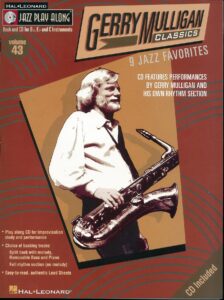
Gerry Mulligan
Baritone saxophonist Gerry Mulligan was a true icon of jazz, being one of the prominent figures in the West Coast scene through the ’50s all the way until his death in 1996. Voted number one musician in his instrument by Downbeat Magazine for 42 years in a row, Mulligan was one of the key players of his time and a figurehead who help shape the sound of jazz to come. From periods in the Birth Of The Cool-era Miles Davis lineup, as well as forming a piano-less quartet with Chet Baker, Gerry was always on the front line of what was hip and happening in America’s one true art form.
Best Sheet Music download from our Library.
This session, recorded at New York’s Nola Penthouse Studios in 1963 is a little-known masterwork from the incredible Gerry Mulligan catalog. It was remastered using transfers from the original tapes, lifted from the Phillips vault, by mastering legend Kevin Gray. With its striking Oliver Hardimon designed cover, Night Lights is the very definition of refined cool jazz. Shimmering with a late-night beauty that perfectly evokes a sophisticated New York City in the early 1960s.
Gerry Mulligan, was, as we all know, the most iconic figure of the baritone saxophone and a major force within the West Coast “Cool School” of American jazz. Indeed, he was voted number one musician on his instrument by Downbeat magazine, for an incredible 42 years in succession. In at the start of this genre of jazz, the complete antithesis to Be-Bop, he played on, and contributed three numbers to the “Birth Of The Cool” sessions in 49 with Miles, Gil Evans and all. Also, famed for his piano-less quartet with Chet Baker and many other collaborations with major players, he was a fine composer, arranger and Big Band leader.
His 59 recordings under his own name were supplemented by numerous others as a sideman. Gerry was born in Queens, New York City on 6th April 1927, he died aged 68 on 20th January 1996, after complications from a knee operation, in Darien, Connecticut. At the time of his death he had been married to his third wife, The Countess Franca Rota Borghini Baldovinetti for twenty years. They met while the saxophonist was on tour in Rome. Many agree that the great man’s success was, above all other, his unique ability to manipulate the sound of the baritone saxophone in a similar uncluttered and smooth fashion as others would the tenor.
At the time of this recording, Mulligan was thirty-seven years old, very well established and able to call upon five other top West Coast musicians for the session, despite the fact that the recording actually took place at The Nola Penthouse Studios in New York. It is surprising to this writer that the album seemed to be somewhat overlooked nearly six decades ago when it was released.
Please, subscribe to our Library.
If you are already a subscriber, please, check our NEW SCORES’ page every month for new sheet music. THANK YOU!
It is difficult to find any reviews of more than 3 stars, even Richard Cook and Brian Morton in the excellent Penguin Guide To Jazz Editions show little enthusiasm. This is in stark contrast to the many enthusiasts I know who own the album and find it a real gem. The scene is best set in directly quoting the closing paragraphs of the liner notes written by the truly wonderful Willis Conover, writer, promoter and broadcaster of “Voice Of America” fame. How much of his tongue was in his cheek we will never know but the following certainly gives us a wonderful insight to the language of the time.
”Musicians know of rooms around the World where lights are low and tables too. They find them when the gig is through, to talk and drink and smile. The sandy sounds of dancing feet are the loudest in the room. You know the scene.
Remember once a room so dark the street outside the window glared by contrast. Doors were locked, the air was sweet, the cigarette was shared. Maybe there was Thornhill’s ” Snowfall”, “Dusk” by Ellington, “Our Waltz”, by David Rose or “Moonlight Serenade”.
The bands are not the same. The songs are new. But nothing’s really changed.”
The disc opens with the Mulligan original and title track “Night Lights”. The leader is on piano here , his considered and crystal like approach sets the ambiance for the whole session. Both Art Farmer and Bob Brookmeyer show the very lightest of touch in their solo’s before the piano returns in a piece which fully reflects the cover art of the album. Louis Bonfa’s “Carnival” from Black Orpheus was a fine choice for this group, with Mulligan’s baritone delicately delivering the theme over Jim Hall’s guitar before valve trombone and flugelhorn take things up a notch over Dave Bailey’s metronomic but entirely appropriate drum contribution.
Side one ends with the leader squeezing every drop of emotion from the theme statement of “Wee Small Hours” which serves as a prelude to the outstanding solo of the whole album from the superb Jim Hall which calls to mind his wonderful contribution to Sonny Rollins “The Bridge” just a year earlier.
A venture into the world of Chopin opens Side 2 with Mulligan’s sonorous baritone to the fore on his own arrangement of the “Prelude In E Minor” before the longest and most upbeat piece on the disc finds the classical theme continuing with his self penned “Festive Minor”, which on some reissues is shown as “Festival Minor”.
This is perhaps a more apt title, where Farmer and Hall both take sprightly but still intimate solos before Brookmeyer’s trombone almost growls during one of the very few ensemble passages on the disc. The strongly themed original “Tell Me When”, with the most light of touches in an exchange of solos between saxophone and trombone, brings this most satisfying and, for many people, “must have” album to a close.
Browse in the Library:
| Artist or Composer / Score name | Cover | List of Contents |
|---|---|---|
| Strauss – An Der Schönen Blauen Donau The Blue Danube (Intermediate Piano Solo) (Musescore File).mscz | ||
| Strauss Also sprach Zarathustra op. 30 (arr. for 2 pianos) |
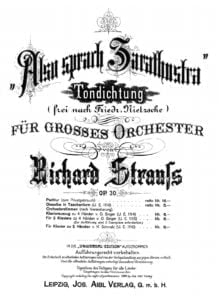 |
|
| Strauss Richard 4 Lieder Op. 27 No. 4 Morgen Musescore File.mscz | ||
| Strauss, Johann Ii An Der Schönen Blauen Donau, Op.314 Jrummel Easy Piano Solo |
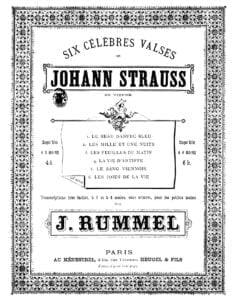 |
|
| Strauss, Johann Ii Waatzes For Piano Op. 314 (Complete) |
 |
|
| Strauss, Johann II Die Fledermaus Suite for piano solo arr. |
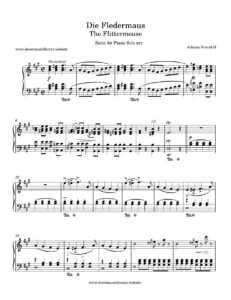 |
|
| Strauss, Johann Ii Die Fledermaus Suite For Piano Solo Arr. Musescore File.mscx | ||
| Strauss, Johann Jr. – The Blue Danube Waltz (Easy Piano Solo) |
 |
|
| Strauss, Richard Also Sprach Zarathustra, Op 30 Einleitung, Oder Sonnenaufgang (Solo Piano Arr) |
 |
|
| Stravinski, Igor – Poetica Musical Book (Español – Spanish) |
 |
|
| Stravinsky Ragtime (Piano Solo, Transcribed By The Composer) |
 |
|
| Stravinsky The Firebird Suite Piano Transcription |
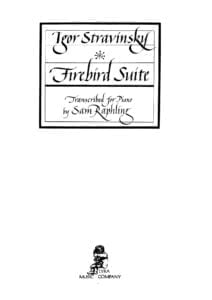 |
|
| Stravinsky Three Movements From Petrushka (piano solo arr.) |
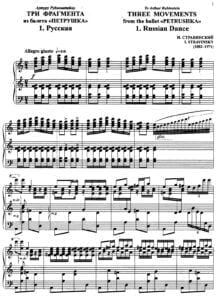 |
|
| Stravinsky – Octet for Wind Instruments |
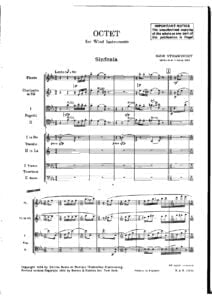 |
|
| Stravinsky – Ragtime (Piano Solo) |
 |
|
| Stravinsky – The Rite of Spring Le Sacre du printemps (4 hands, piano à 4 mains) | Stravinsky – The Rite of Spring Le Sacre du printemps (4 hands, piano à 4 mains) | |
| Stravinsky – The Rite Of Spring – piano 2 hands – arr. by Raphling |
 |
|
| Stravinsky 3 Easy pieces for piano 4 hands |
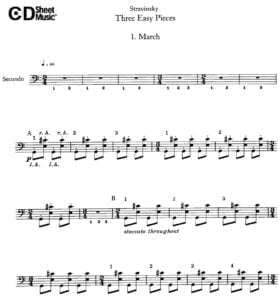 |
|
| Stravinsky 4 Etudes Op.7 |
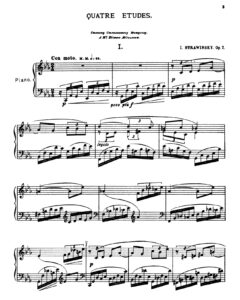 |
|
| Stravinsky And His World by Tamara Levitz (Book) |
 |
|
| Stravinsky Sonata F Sharp Minor |
 |
|
| Stravinsky Symphony of Psalms (arr. piano solo) | ||
| Stravinsky Tango |
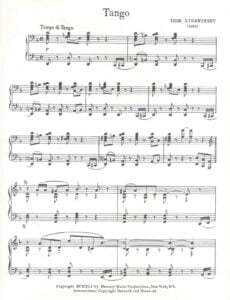 |
|
| Stravinsky The Firebird Piano Transcription |
 |
Stravinsky: The Firebird |
| Stravinsky, Igor 5 Easy Pieces [Piano 4 Hands] |
 |
|
| Stravinsky, Igor – The Rite of Spring Le Sacre du Printemps (piano solo) |
 |
|
| Straylight Run – Existentialism On Prom Night | ||
| Streabbog (Jean Louis Gobbaerts) – 12 Easy and Melodious Studies, Op 64 | ||
| Streabbog (Jean Louis Gobbaerts) – 12 Very Easy and Melodious Studies, op 63 | ||
| Streabbog Book 1 Opus 63 Twelve Very Easy And Melodious Studies |
 |
|
| Streabbog Book 2 Opus 64 12 Melodious Pieces For Piano |
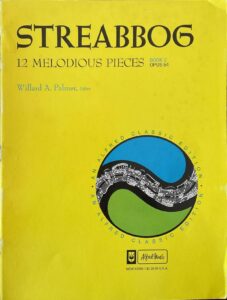 |
|
| Stride & Swing Piano The Complete Guide by John Valerio |
 |
Stride & Swing Piano Stride & Swing Piano – The Complete Guide |
| Stuart K. Hine How Great Thou Art Arr Joel Raney 6 Concert Hymns Expressions For Solo Piano |
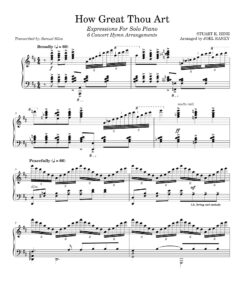 |
|
| Studio Ghibli Guitar Arrangements Best Album (Joe Hisaishi & Hayao Miyazaki) with Tablature |
 |
|
| Studio Ghibli Piano Suite |
 |
|
| Styx – Babe | ||
| Styx – Come Sail Away |
 |
|
| Succar Ya Banat (Caramel OST) Rasha Rizk | ||
| Suis-moi – Le Petit Prince OST (Hans Zimmer – Camille) | ||
| Sum 41 – Pieces | ||
| Summer of ’42 (Michel Legrand) | ||
| Summer of ’42 The Summer Knows Michel Legrand Piano & Voice |
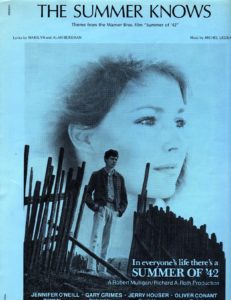 |
Summer of ’42 The Summer Knows Michel Legrand Piano & Voice |
| SUMMER OF’42 THE SUMMER KNOWS Piano (another version) | THE SUMMER KNOWS -SUMMER OF’42 | |
| Summertime – Piano arrangement Pianos Of Cha’n |
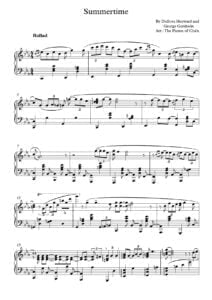 |
|
| Summertime G. Gershwin |
 |
|
| Sun Ra sheet music Collection | 1 Sun Ra index sheet music | |
| Sunday Music (100 Arrangements For Piano Solo) E. Pauer |
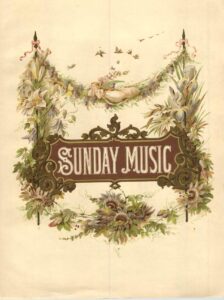 |
Sunday Music (100 Arrangements For Piano Solo) E. Pauer |
| Sunrise on Pontchartrain (The Curious Case of Benjamin Button OST) Alexandre Desplat | Sunrise on Pontchartrain | |
| Super Junior Pajama Party |
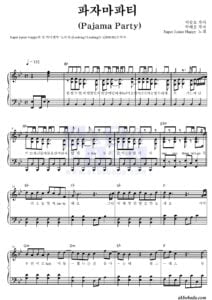 |
|
| Super Mario 64 – dire,dire docks |
 |
|
| Super Mario 64 by Koji Kondo – Piano |
 |
|
| Super Mario Bros – Main Theme | Super-Mario-Bros-Main-Theme | |
| Super Mario Bros – Main Theme Overworld |
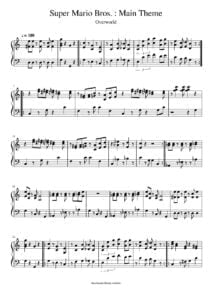 |
|
| Super Mario Bros – Main Theme Overworld (Musescore File).mscz | ||
| Super Mario Bros – Mario Main Theme – Koji Kondo | ||
| Super Mario Bros 2 Overworld Theme by Koji Kondo Piano Solo |
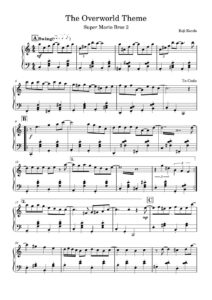 |
|
| Super Mario Bros 2 Complete Piano Arrangement |
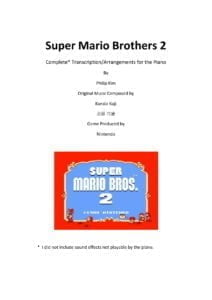 |
|
| Super Mario Bros Overworld Main Theme sheet music |
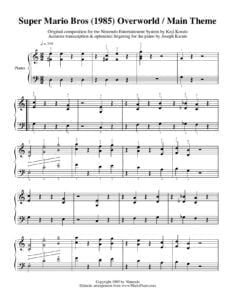 |
|
| Super Mario Bros Songbook |
 |
|
| Super Mario Bros. 3 Don’t stand on the Donuts – Piano Sheet Music |
 |
|
| Super Mario Galaxy – Aquatic Race |
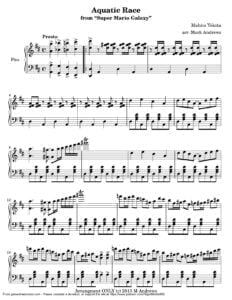 |
|
| Super Mario Galaxy – Attack! Koopas Fleet |
 |
|
| Super Mario Galaxy – Catastrophe |
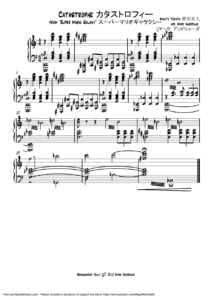 |
|
| Super Mario Galaxy – File Select |
 |
|
| Super Mario Galaxy – King Koopa’s Entrance |
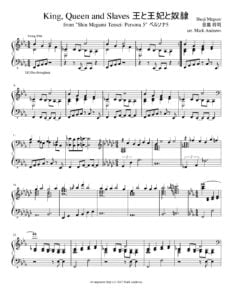 |
|
| Super Mario Galaxy – Kinopio’s Expedition |
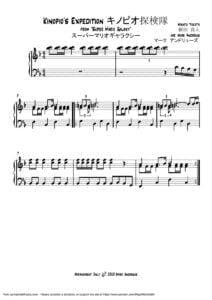 |
|
| Super Mario Galaxy – Overture |
 |
|
| Super Mario Galaxy – Peachs Castle is Stolen |
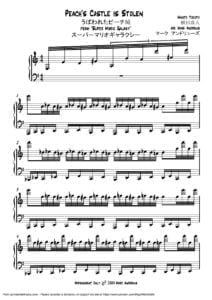 |
|
| Super Mario Galaxy – Rosetta’s Comet Observatory I |
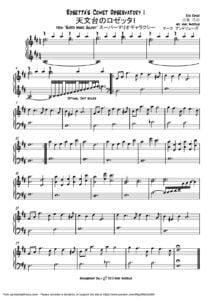 |
|
| Super Mario Galaxy – Starbit Festival |
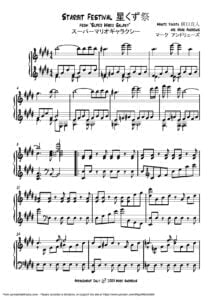 |
|
| Super Mario Galaxy Complete Sheet Music |
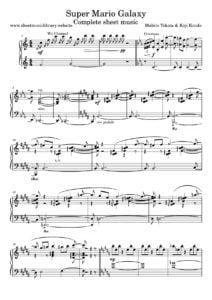 |
|
| Super Mario Galaxy Sheet Music (Musescore File).mscz | ||
| Super Mario Land – Birabuto Kingdom by Hirokazu Tamaka |
 |
|
| Super Mario World 2 Yoshis Island – Athletic |
 |
|
| Super Sight Reading Secrets by Howard Richman (Book) for keyboard players |
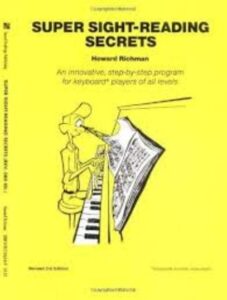 |
|
| Super Solos for Acoustic Guitar Solos (by Johnny Norris) Fingerpicking with Tablature |
 |
Super Solos for Acoustic Guitar Solos (by Johnny Norris) Fingerpicking with Tablature |
| Super Top Ten Volume (Guitar) |
 |
Super Top Ten Volume (Guitar) |
| Supercell – Sayonara Memories |
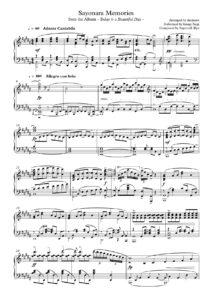 |
|
| Superhero Themes 14 of Your Favorite Heroes and She-Roes |
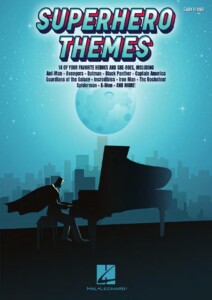 |
Superhero Themes 14 of Your Favorite Heroes and She-Roes |
| Superman Theme For Piano |
 |
|
| Supertramp – Breakfast In America |
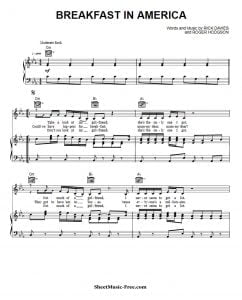 |
Supertramp Breakfast In America Book |
| Supertramp – Logical Song | ||
| Supertramp Anthology Songbook |
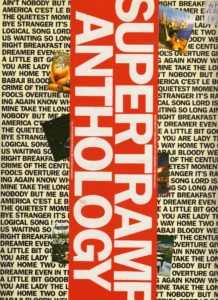 |
Supertramp Anthology Songbook |
| Supertramp Breakfast In America SongBook |
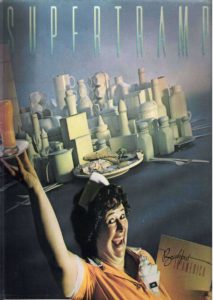 |
Supertramp Breakfast In America Book |
| Supertramp Crisis What Crisis SongBook |
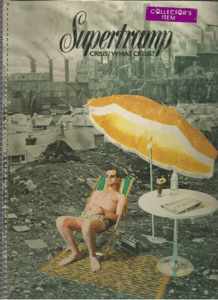 |
 |
| Supertramp Even In The Quietest Moments Songbook |
 |
Supertramp Even In The Quietest Moments |
| Supertramp Famous Last Words SongBook |
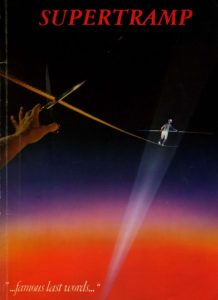 |
Supertramp Famous Last Words Book |
| Supertramp Paris SongBook |
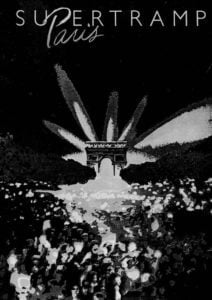 |
Supertramp Paris Book |
| Surface Pressure – Encanto (sheet music).mscz | ||
| Suzanne Ciani Adagio from the album Pianissimo | Suzanne-Ciani-Adagio 1st page | |
| Suzanne Ciani Dream Songs for piano |
 |
Suzanne Ciani Dream Songs piano |
| Suzanne Ciani New Age Piano |
 |
Suzanne Ciani New Age Piano |
| Suzanne Vega Songbook |
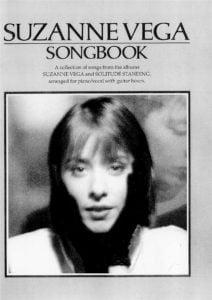 |
Suzanne Vega Songbook |
| SUZUKI – Guitar School Revised Edition (Vol 1) |
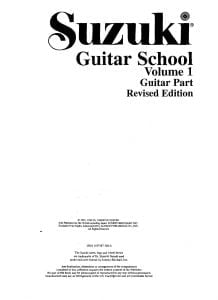 |
SUZUKI – Guitar School Revised Edition (Vol 1) |
| Suzuki Guitar (Complete Vol. 1 To 9) |
 |
SUZUKI GUITAR Vol 1-9 |
| Suzuki Piano School – Vol 07 – Mozart Handel and Paderevski |
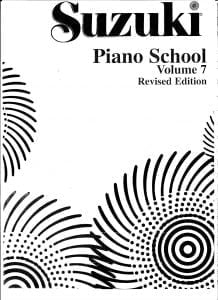 |
|
| Suzuki Piano School Volumes 1 to 7 (240 p.) |
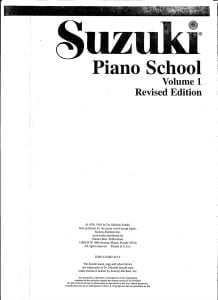 |
Suzuki 1-7 – Piano School (7 books) |
| Suzuki Tsunekichi – Omohi De – Irish Folk Song Opening Theme To The Netflix Series Midnight Diner Tokyo Stories) (Musescore File).mscz | ||
| Suzuki Tsunekichi – Omohi de – Irish Folk Song Opening theme to the Netflix series Midnight Diner Tokyo Stories) Guitar | Suzuki Tsunekichi – Omohi de – Irish Folk Song Opening theme to the Netflix series Midnight Diner Tokyo Stories) Guitar | |
| Sveinn Eythorsson – Easy Guitar Songs |
 |
|
| Swan Lake Theme – Tchaikovsky (Musescore File).mscz | ||
| Swanee River Boogie Woogie – Albert Ammons (Musescore File).mscz | ||
| Sweet Hour Of Prayer – Piano Solo arr. of 13 Sacred Songs by Marvin Goldstein |
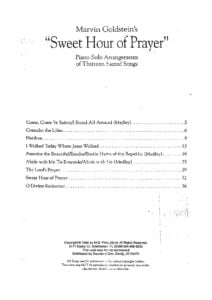 |
|
| Swing And Early Progressive Piano Styles Jazz Improvisation 3 by John Mehegam |
 |
Swing And Early Progressive Piano Styles Jazz Improvisation 3 by John Mehegam |
| Swing Low Sweet Charriot (Musescore File).mscz | ||
| Sydney Bechet Si Tu Vois Ma Mere Lead sheet music GUITAR CHORDS |
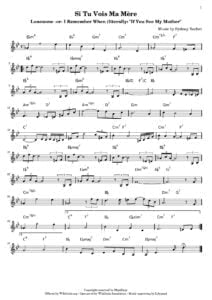 |
|
| Symphony No 40 In Gm K550 (Musescore File).mscz | ||
| Symphony No 9 In E Minor (From The New World) For Piano – 1st Movement (Adagio – Allegro Molto) (Musescore File).mscz | ||
| Symphony No 9 In E Minor (From The New World) For Piano – 2nd Movement (Largo) (Musescore File).mscz | ||
| Symphony No 9 In E Minor 4th Mov. (From The New World) A. Dvorak (Musescore File).mscz | ||
| Symphony No. 2 Third Mov. Advanced Piano Arr. (Musescore File).mscz | ||
| Symphony No. 5 – Adagietto Gustav Mahler (Musescore File).mscz | ||
| System Of A Down – Lonely Day | ||
| T – Pain – Buy You A Drink | ||
| Table for Two – Nocturnal Animals OST (Abel Korzeniowski) | ||
| Takashi Yoshimatsu – Piano Folio … To a disappeared pleiad | ||
| Take Five (Musescore File).mscz | ||
| Take Five by Paul Desmond Jazz Play Along |
 |
|
| Take Five Guitar by Chet Atkins.mscz | ||
| Take Five Jazz Standard by Paul Desmond arranged for Guitar by Chet Atkins with Tablature TABs | Take Five Jazz Standard by Paul Desmond arranged for Guitar by Chet Atkins with Tablature |
